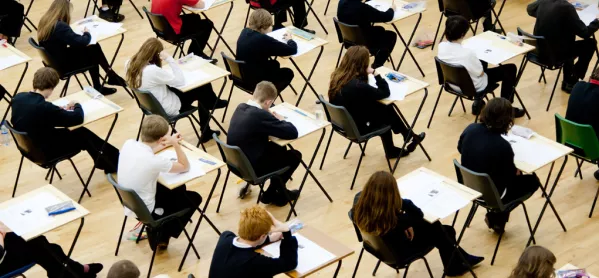Back when we were making mock exams for the old spec - back in the not-so-good old days of contentious controlled assessment and open-book exams - my language mock exams were a nightmare to create. We needed three separate texts: one containing an “interesting image”, one from an autobiography and one “this is what I’ve been doing”-type article. I thought life was hard then. Oh, silly 2009 Mrs Hallahan. You didn’t know how easy you had it.
For this year’s mock exams, sourcing non-fiction Victorian texts has been hard. Finding ones of the right length, the right time period and most importantly, the right calibre has been even harder. But not impossible.
Mocks are important for so many reasons, I need not detail them all here. They allow students to be exposed to a range of challenging sources and to practise the skills needed for the exam. Here is my guide to creating a mock exam paper, drawn from my experience of working to the new AQA English language specification.
Paper 1: fiction
The “ideal” extract will contain the following components: a link between the beginning and end, a descriptive passage and two points of interest to allow for a good “evaluation” question (question four) that won’t cause students to repeat themselves from question two.
Some top tips:
- Give it a trim. As we saw in the AQA exam, in which a Katherine Mansfield short story was carved up beyond recognition, we needn’t worry about trimming or reworking the extract to make it fit with what we need.
- Download an optical character recognition (OCR) app and turn photographs of texts into editable documents. This will be much quicker than typing them up.
- Have a look at your exam board website for suggestions of texts or authors.
Paper 2: non-fiction
Check the centuries required by the exam board. For example, AQA can be 19th and 20th or 21st. Good extracts need to be connected and demonstrate a difference of viewpoints or attitudes.
Some additional tips:
- Don’t get too hung up on dates. If you find something from around the turn of the century, but it is not a great piece of writing, you might want to look again. The quality of the writing is more important. You’re looking to improve students’ abilities to analyse, not to exactly replicate an exam paper.
- Look to the news for inspiration. Current news stories frequently refer back to historical events, which will give you clues about where you can find a linking source.
- Be open-minded about the form the extract can take: speeches, letters, and eye-witness accounts can provide great source material. When googling, phrases such as “primary source” have often thrown up excellent results for me.
And if you are struggling to find good writers to use for 19th-century non-fiction, try some of these:
- Fanny Burney was famous for her novels, but was a great writer of letters, too.
- Florence Dixie was a Scottish lady and general superwoman. She was a football-playing war correspondent feminist who wrote to Charles Darwin and The Pall Mall Gazette.
- Arthur Conan Doyle. As well as giving birth to our favourite detective, he wrote plenty of non-fiction, on topics from fairies to failing marathon runners.
- Lieutenant Colonel Newnham-Davis was a Victorian food critic. His reviews are the right level of challenge - and also incredibly funny.
- Thomas Legh wrote an account of his journey into Egypt and describes seeing the Ozymandias statue, along with other adventures.
Grainne Hallahan has been teaching English in Essex for 10 years. She is part of the #TeamEnglish Twitter group. She tweets @heymrshallahan
Want to keep up with the latest education news and opinion? Follow Tes on Twitter and Instagram, and like Tes on Facebook




